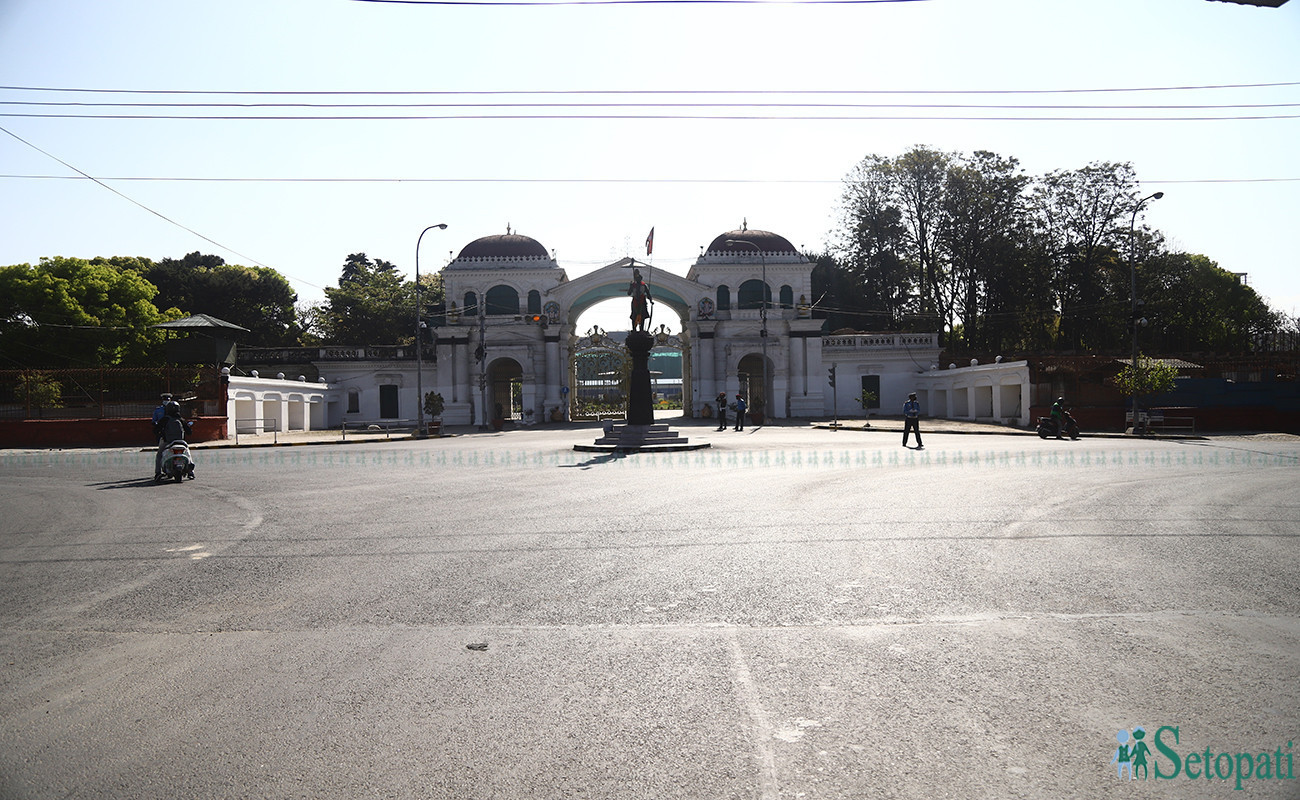PunitaRimal
Dr. Shyam P Lohani
The coronavirus pandemic has resulted, as of April 14, more than 1.9 million cases worldwide with nearly 120,000 deaths. Among them, more than 1.3 million cases are still active of which 1,305,893 (96%) cases in mild condition and the remaining 4% in serious or critical condition. There were 567, 522 closed cases of which 447, 821 (79%) recovered/discharged and the remaining 21% succumbed to death (Worldometers.info).
Many countries have strict lockdown in place, others maintain or extend lockdown and still, others are planning to ease lockdown partly despite the World Health Organization (WHO) recommendation in favor of continuing lockdown. There are benefits of easing lockdown in some parts of society.
Current Scenario
Despite the fear that another wave may hit hard with thousands of deaths, most hard-hit countries in Europe are planning to lift restrictions. Italy, after the current lockdown expires on Tuesday, will allow some additional businesses to open. Denmark and Norway will reopen kindergartens and schools from the next week. Austria is planning to reopen smaller businesses this week. One of the hardest-hit countries, Spain, is planning to ease restriction on some, even, nonessential workers to return to work although their new case finding has decreased significantly from the middle of March to now.
The hardest-hit country in the Middle East, Iran, is opening up government offices, shops, services, and manufacturing industries in phases. The logic behind the phase-wise lift is that the economy and government activities must continue with physical distancing still being observed. The first epicenter, Wuhan of China, has ended its lockdown. India has extended the nationwide lockdown until May 3. The new measures such as to halt the air traffic by Israel after their mandatory quarantine period and temperature checks were violated at Ben Gurion Airport and order of a two-day curfew for 31 provinces by Turkey.
Most infections do not take place in supermarkets or restaurants in the world. They may take place at risky places such as hospitals, especially in the Intensive Care Units (ICU). There have been a plethora of evidence that the virus gets transmitted from the surfaces of door handles, smartphones or other objects (e.g. paper money). Mass events are a perfect opportunity for the virus to get transmitted; where strangers meet, at will, with other strangers. The mass event that occurred in New York is a perfect example of how coronavirus spread among its citizens. Religious gatherings have also been found to spread corona.
Let me simplify it, assume we have 100 people spend enough time in a room with a person carrying the virus and, then for example 10 get the new infections. After the incubation period, they may pass it on to their families and colleagues and then assume each transmits to multiple persons. Within a few days, the virus can thus get multiplied by 100 times with the only single at the beginning and then continue. This is how the virus gets multiplied exponentially. Out of 100, say only 20% developed symptoms and are quarantined or treated in isolation and the other 80 remained either asymptomatic or had mild symptoms. Those who remain asymptomatic are the potential carrier and transmit the virus to others.
Clustered lockdown should be practiced in which all those potential points of transmission are blocked such as crowded restaurants, cinema halls, sports events and mass transport systems, etc. The borders should be sealed and only transports that carry essential goods are allowed through the border with precaution.
Way Forward
The general public is allowed with restrictions to perform their work. People should follow all the precautionary measures such as wearing a face mask, washing hands frequently with soap and water, using sanitizer, cleaning surfaces frequently such as doorknobs, handles, or other objects that support retention of viruses and a potential source of transmission to human. The offices, industries, schools, and colleges (where physical distancing can be implemented) taking precautionary measures should be allowed to open and other places, even restaurant but not party venues and cinema halls (closed spaces) should remain closed.
Immediate relief such as groceries and medicines should be distributed continuously as and when needed for identified needy individuals or families. The government should provide compensation in terms of tax rebate; banks should ease installments and cut interest to all service industries (private schools, colleges, etc.) as well as to manufacturing industries and many relief packages in the long run to private enterprises by the government
We, as laymen, see many private enterprises going to bankruptcy as an aftermath of this COVID-19 crisis. The longer we put lockdown in place, the greater the number of private enterprises filing for bankruptcy. We cannot lock the country for an indefinite period. It has to ease. We do not see the point in general/ complete lockdown. Only if a country can afford, then can it be locked down for an indefinite period and or until vaccines are made available. After all, it has now become necessary to learn how to live safely amid pandemic.
(Rimal is the treasurer at the Media Foundation, Nepal and Dr Lohani is the Professor at Nobel College, Pokhara University. Lohani can be reached at lohanis@gmail.com)

